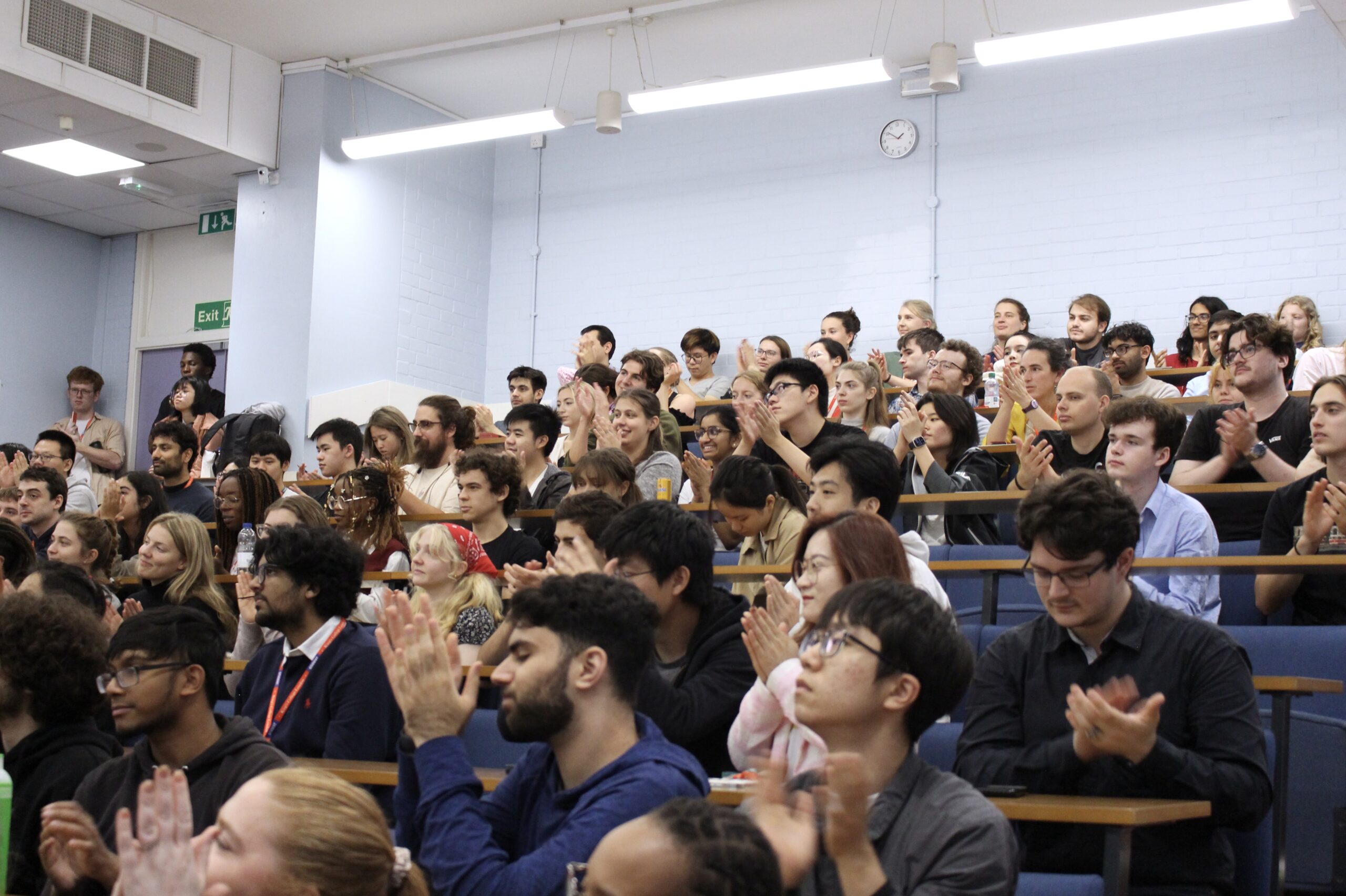European Parliament Vice President Dita Charanzovà visits King’s College London (KCL) to discuss digital security, AI, and international trade.

On 14 November, King’s College London hosted European Parliament Vice President Dita Charanzovà in the Anatomy Lecture Theatre on Strand Campus to engage in a discussion entitled ‘What is the Future of Digital Europe?’. This discussion is the first of a series of ‘Brussels Bubble’ academic talks, hosted by the European International Studies King’s Association (EISKA).
Charanzovà has represented the Czech Republic in the European Parliament since July of 2014 and has been a Vice President since July 2019. As Vice President, Charanzovà is responsible for security and defence of the European Parliament, and plays a significant role in defining the European Parliament’s positions on digital economy, human rights, and international trade. Reflecting on her career in an exclusive interview for Roar, Charanzovà notes, “my dream, my hope, was that one day, my country could join the European Union. I’m really proud, privileged, and honoured that I am still a part of this process.”
“Securing one of the Vice Presidents of the European Parliament as our first guest speaker is a huge achievement”, says Head of Events Erik Metaliaj. It was certainly bold; this is a remarkably ambitious event for EISKA, an organization which had died out two years ago after challenges from the pandemic made recruitment difficult. “Nobody knew what [EISKA] was”, reflects EISKA Vice President Nela Duniova, “We had to rebrand, create new leadership, and make a complete turnaround.” Since March of 2023, Mathilde Durousseau, now EISKA president, made revival a priority. “Starting EISKA from scratch would have never been possible without the help of the hard-working people who give it its soul. To the committee, thank you”.
King’s students and EISKA committee members Martyna Sledz, Erik Metaliaj, Anuj Rasarathnam, Nela Duniova, and president Mathilde Durousseau prioritized enterprising spirit and assiduousness in September to fill out the committee, and since September, have added three new event managers and a secretary. “EISKA is ambitious. Without ambition we wouldn’t have achieved what we have so far” reflects Metaliaj, when asked about inviting the high-profile Charanzovà.
An event at this scale was not a simple one to pull off. Anxieties over how to win attendees with an association name not yet recognizable were compounded with the importance of treating the high-profile speaker with the respect she warranted. Ultimately, Durousseau considers the event a success: “The attendance was great, with not only students from King’s but also from the London School of Economics, Sciences Po Paris, and ESCP. They showed interest by asking pertinent and valuable questions–the event ran smoothly.” She was right to focus on the remarkably inter-collegiate nature of the event. When Durousseau opened up the floor for audience questions, postgraduate students at King’s, exchange students from various high-profile European universities and dogged business-minded students from across London vied for Charanzovà’s ear. While asking complex, well-researched questions, the students reflected their shared anxiety over the future of AI in business, politics and war.
If the EISKA committee was nervous about the event, they did not let it affect its structure. Rather than be cowed by the high expectation set by a high-profile speaker, EISKA rose to the occasion, presenting Charanzovà with an array of daunting questions. To one that challenged the relationship between human rights protections and globalized trade, Charanzovà responded with commendable elegance: “We have shifted, now, to something that contains human rights and sustainability, together. Through our efforts, we have reduced global poverty,” though she noted, “We still have countries where we need to do more.” Her optimism about the future of AI and technology hasn’t blinded her to their challenges. “I’m really happy and proud that Europe is taking the first steps to regulate Artificial Intelligence,” she said, as she continued to outline the European Parliament’s pyramid-style legislation proposals for AI regulation. “We want to tackle the problems that we see today.” She said, soberingly. “I don’t know what the problems will be tomorrow.”
Throughout the discussion, Charanzovà’s pride in her position was evident. Several times, she emphasized “The European Union has the highest protection of consumers in the world,” and “The European Union is the biggest democratic market in the world.” In describing her goals for the European Parliament, she stressed the importance of “legislation that focuses on problems–real problems,” something she highlighted again when speaking privately to Roar. It is evident Charanzovà is as passionate as she is intelligent. “I would like to see the European Parliament become a clearly stronger voice for the citizens,” she said to Roar. “It’s the only democratically elected institution in the European Union, and I think over these four difficult years we managed to give answers to the citizens who expect the European Parliament to act.”
Ultimately, EISKA’s first Brussel’s Bubble event was an intelligent, academically challenging examination of the unique challenges digital spaces have posed to the European Union. Though the attendees did not hesitate to make their anxieties about the future of data protection and artificial intelligence known, Charanzovà’s optimism was inspiring. “You are the future generation.” She told Roar. “If I’m building something in Europe, I want to make sure it’s the future you want.”
Despite the success of the event, EISKA will not rest long. “EISKA is back for good”, Durousseau asserts. “I would advise students to keep an eye out for our social media accounts–we will announce and release tickets for future events soon.”
EISKA will host European Chief Prosecutor Laura Codruța Kövesi in their next Brussel’s Bubble discussion on November 27th, 2023.



Evelyn Shepphird is a second year student at King's College London, on the European Studies (French Pathway) Programme.

















